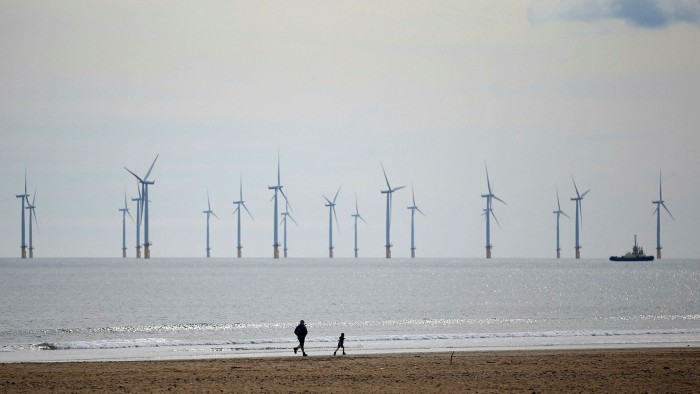ETFs struggle to adapt to EU’s new SFDR sustainable fund rules

Simply sign up to the Exchange traded funds myFT Digest -- delivered directly to your inbox.
Index-tracking and exchange traded funds are at risk of missing out on demand for sustainable funds as they struggle to adapt to new EU disclosure rules.
The EU’s Sustainable Finance Disclosure Regulation, which came into force in March, classifies funds that promote environmental or social characteristics among other objectives as article eight, and funds that have sustainable investment as their objective as article nine.
While actively managed funds have been able to tweak their strategies to meet investor demand for sustainable funds, the changes needed for passive funds to comply with article eight or nine are “more drastic”, according to Hortense Bioy, global director of sustainability research at Morningstar.
“By definition, tweaking an active strategy is acceptable since it’s the job of portfolio managers to make active decisions,” she said.

This article was previously published by Ignites Europe, a title owned by the FT Group.
“[But] passive portfolio managers are not mandated to make changes to their funds’ strategies. If they change the rules, then the fund becomes a different investment proposition and fund holders would likely divest.”
One asset management executive, who declined to be named, agreed, saying ETF providers have to be “mindful” of the impact on clients of moving existing products to ESG indices or they “run the risk” of clients disinvesting.
New research shows that actively managed Ucits funds have twice as large a proportion of green assets as passive funds.
While 20 per cent of assets in index funds and ETFs are article eight or nine products, the equivalent proportion is 39 per cent for actively managed funds, according to Ignites Europe analysis of Morningstar data.
Passive Ucits funds assessed by Morningstar include €289.6bn assets in article eight products and €28.2bn assets in article nine products, out of a total of €1.572tn.
Vanguard, Invesco, DWS and BlackRock are among the fund managers with less than 20 per cent of their passive Ucits fund assets in ESG or sustainable investment products.
By contrast, Swedbank, Handelsbanken, Northern Trust and BNP Paribas each have more than 50 per cent of their passive fund assets in article eight or nine funds.
Vanguard, which has 3 per cent of its passive Ucits fund assets in article eight funds, said it took a “disciplined and thoughtful approach to product development”, including how the firm “evolves” its ESG line-up to meet the needs of its investors.
Vanguard added that “because material ESG risks can undermine returns over the long run for all investors […], [its] investment stewardship team engages with company leaders and boards on risk oversight processes and effective disclosure”.
DWS declined to comment. HSBC did not respond to a request for comment.
The inability of existing passive funds to easily meet article eight or nine requirements is set to have an impact on growth, as investor demand currently focuses on sustainable funds.
European sustainable funds had net inflows of €265.3bn over the first seven months of this year, outpacing sales of €225.8bn for non-sustainable products.
Beyond launching new ESG funds, passive fund providers have three options to tackle the twin challenges presented by SFDR and client demand, according to Bioy.
Companies can switch funds from “traditional” indices to ESG indices, which some have already started doing, including Amundi and DWS.
They can “continue to track traditional indices but exclude companies that do not meet the asset manager’s ESG policy”, as Dutch group Actiam did last year.
Or asset managers can continue to track traditional indices but “evidence” their ESG credentials through investment stewardship, and “actively and strategically voting and engaging with companies”.
“No asset manager in Europe has chosen this [last] option alone and it would probably be frowned upon in the context of SFDR, but that narrative exists in the US,” said Bioy.
The analysis is based on Ucits funds in 14 European domiciles. Morningstar categorises article eight and nine funds based on disclosures in funds’ prospectuses.
*Ignites Europe is a news service published by FT Specialist for professionals working in the asset management industry. It covers everything from new product launches to regulations and industry trends. Trials and subscriptions are available at igniteseurope.com.
Interested in ETFs?
Visit our ETF Hub for investor news and education, market updates and analysis and easy-to-use tools to help you select the right ETFs.
Comments